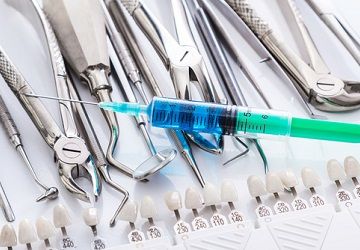Which Anesthesia Do Dental Patients Prefer? Study Offers Insights
The study, performed by researchers at the Tokyo Dental College, looked to determine whether dental patients preferred propofol or sevoflurane.

A new study in the latest issue of Anesthesia Progress sheds new light on which anesthesia type dental patients prefer.
The study, performed by researchers at the Tokyo Dental College, looked to determine whether dental patients preferred propofol or sevoflurane. They did so by comparing patients’ recovery satisfaction after sedation by each drug. Researchers used all healthy patients who had never been under anesthesia for prior dental treatment.
The study group included 20 patients whose course of treatment included two procedures under general anesthesia. A different type of anesthesia was used for each procedure. Researchers also excluded the use of opioid analgesics and/or nitrous oxide to maintain sedation in order to eliminate those variables, which were present in previous studies.
When comparing the two drugs, researchers noted no difference in the patients’ recovery time, though patients did “come out of anesthesia more quickly with sevoflurane than from propofol,” a news release says. Some patients experienced nausea from the sevoflurane, but there were no adverse effects reported after 24 hours.
“All patients were able to eat their first meal and drink fluids at a similar time, and no patients experienced nausea or vomiting once leaving the dentist’s office,” a news release from Anesthesia Progress said.
Patients were called 24 hours after their procedures and given a questionnaire. After their second procedure, the patients were asked to rate which anesthesia they would choose for any future dental work. Of the 20 patients, 16 said they preferred propofol and 4 said that they preferred sevoflurane. These patients said they experienced more discomfort and fatigue from the sevoflurane.
“The researchers concluded that propofol is the anesthetic of choice for dental patients with severe anxiety about surgery, but these patients may continue to need general anesthesia in future surgeries,” the news release said. “When patient satisfaction is the highest priority, the researchers suggest that dentists may want to give propofol during in-office surgery.”